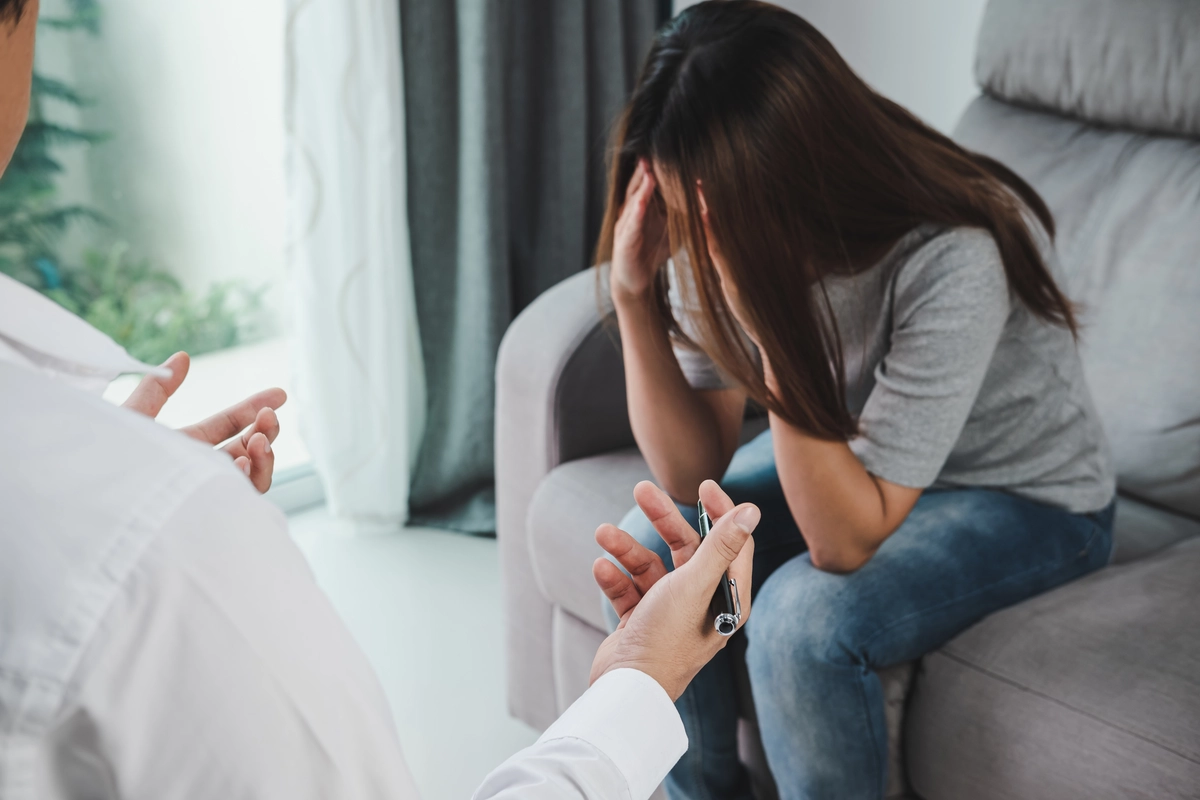24/7 Helpline:
(866) 899-221924/7 Helpline:
(866) 899-2219
Learn more about Bipolar Disorder Treatment centers in Deschutes County

Other Insurance Options

Highmark

Coventry Health Care

CareFirst

Sliding scale payment assistance

WellCare Health Plans

Covered California

Access to Recovery (ATR) Voucher

Optima

EmblemHealth

Optum

Multiplan

Absolute Total Care

Oxford

Excellus

Carleon

GEHA

Ceridian

Providence

Health Net

Humana

Teen Challenge – Seattle Metro Campus
Teen Challenge - Seattle Metro Campus offers inpatient treatment for men with alcohol and/or substan...

New Priorities Family Services
New Priorities Family Services is a private rehab located in Redmond, OR. New Priorities Family Serv...

Saint Charles Health System – Outpatient
Saint Charles Health System – Outpatient is a private rehab located in Bend, Oregon. Saint Charles H...

Saint Charles Health System – Outpatient
Saint Charles Health System – Outpatient is a private rehab located in Redmond, Oregon. Saint Charle...

BestCare – Residential Treatment
BestCare Treatment Services is a co-occurring mental health and substance use treatment facility loc...

BestCare – Outpatient Treatment
BestCare - Outpatient Treatment is located in Redmond, Oregon. BestCare - Outpatient Treatment advoc...

BestCare – Brooks Respite & Recovery
BestCare – Brooks Respite & Recovery is a non-profit rehab located in Redmond, Oregon. BestCare – Br...

Deschutes Wilderness Therapy
Deschutes Wilderness Therapy is a private rehab located in Bend, Oregon. Deschutes Wilderness Therap...

BestCare – Bend Outpatient Treatment Center
BestCare – Bend Outpatient Treatment Center is a non-profit rehab located in Bend, Oregon. BestCare ...

Youth Eastside Services
Youth Eastside Services is a non-profit rehab located in Redmond, Washington. Youth Eastside Service...








































Rimrock Trails Adolescent Treatment Services – Outpatient
Rimrock Trails Adolescent Treatment Services – Outpatient is a private rehab located in Redmond, Ore...

Turning Points Recovery Services
Turning Points Recovery Services is a private rehab located in Bend, Oregon. Turning Points Recovery...

Serenity Lane
Serenity Lane is located in Bend, Oregon. Serenity Lane is a specialty treatment facility for the di...

BestCare – Outpatient Treatment
BestCare - Outpatient Treatment is located in Bend, Oregon. BestCare - Outpatient Treatment advocate...

Rimrock Trails Treatment Services Bend Outpatient
Rimrock Trails Treatment Services Bend Outpatient is a non-profit rehab located in Bend, Oregon. Rim...

Cooley Associates Counseling
Cooley Associates Counseling is a private rehab located in Bend, Oregon. Cooley Associates Counselin...

Sound Mental Health – Counseling
Sound Mental Health – Counseling is a private rehab located in Redmond, Washington. Sound Mental Hea...

Square One
Square One offers outpatient and intensive outpatient services for individuals with a Substance Addi...

Sound Mental Health – 166th Avenue Northeast
Sound Mental Health – 166th Avenue Northeast is a private rehab located in Redmond, Washington. Soun...

Antioch Counseling and Treatment Services (ACTS)
Antioch Counseling and Treatment Services (ACTS) is a non-profit rehab located in Redmond, Washingto...

Sound Mental Health – Avondale Road Northeast
Sound Mental Health – Avondale Road Northeast is a private rehab located in Redmond, Washington. Sou...















